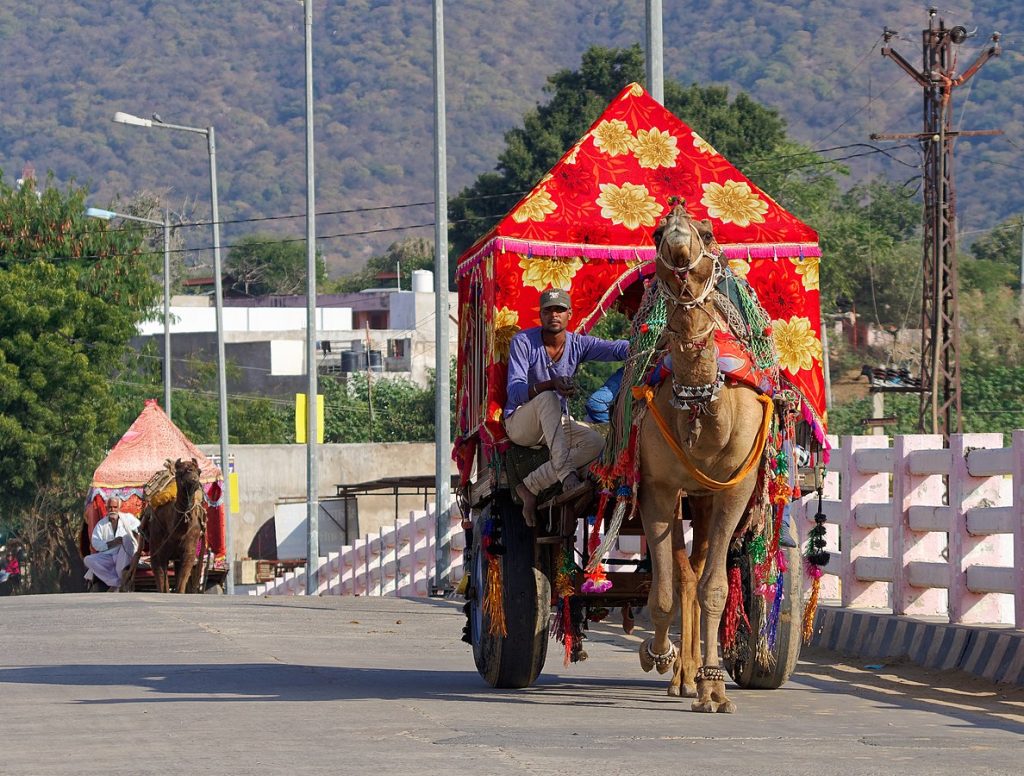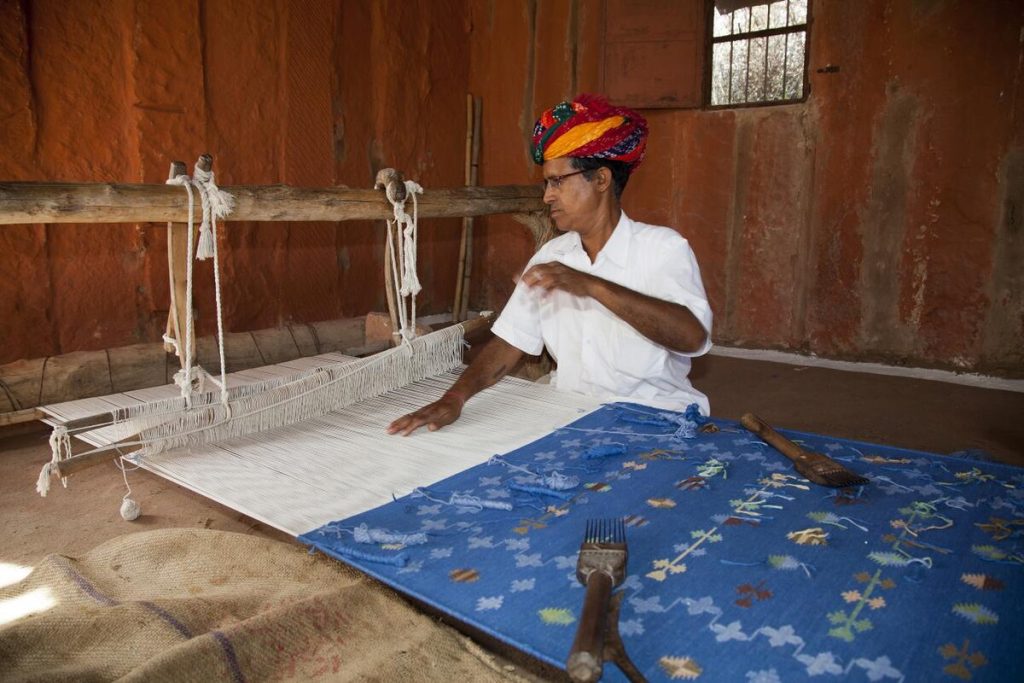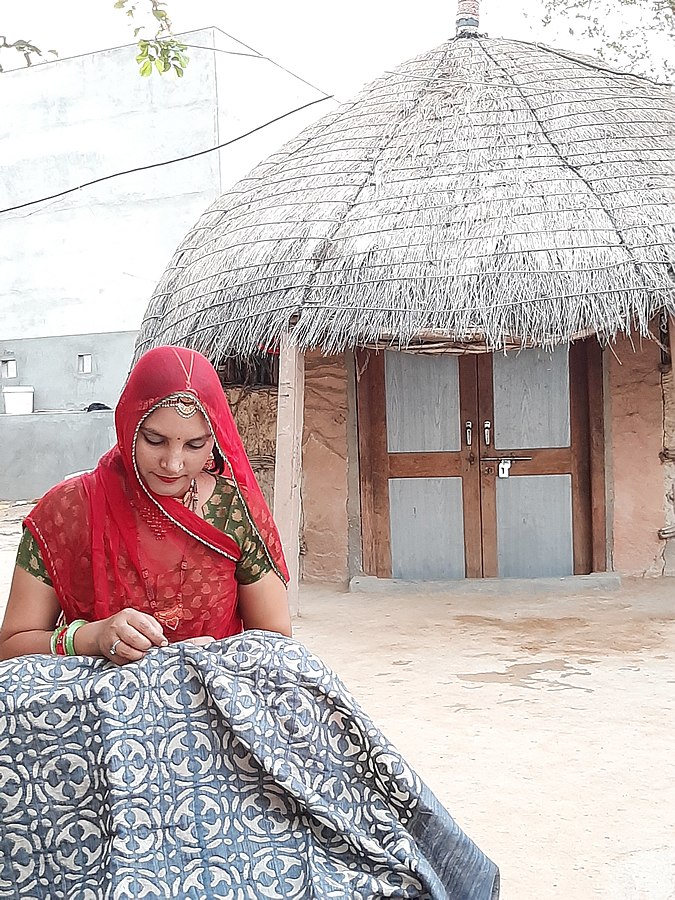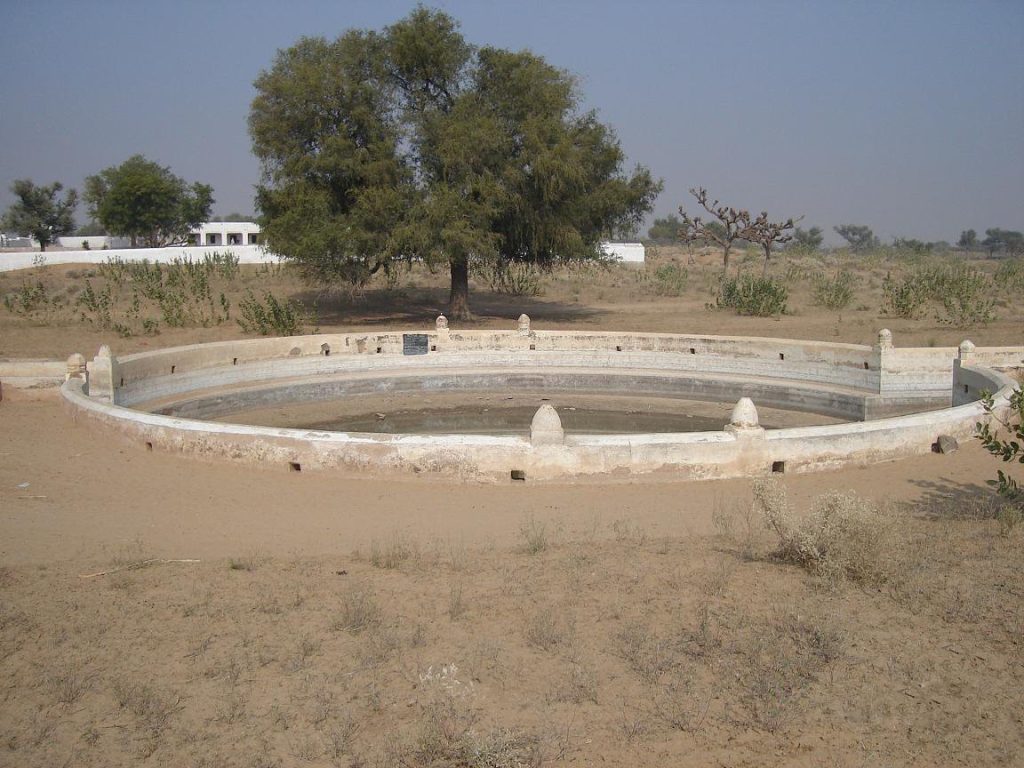Dotted with majestic hilltop forts and ornate palaces adorning Aravalli ranges, folk musicians carrying centuries-old musical traditions, and expansive golden deserts with camel caravans transporting you back in time – Rajasthan offers travelers a sense of living heritage at every corner. As you journey across this arid state steeped in rich history and culture, indulge in opulent heritage hotels one day and rustic village homestays the next – all while ensuring your footprint remains ecologically gentle. It’s you chance to be a part of sustainable tourism in Rajasthan.
Tread Lightly Across Desert Dunes

Escape frenzied cities to overnight under starry skies in Osian village, surrounded by cenotaphs and Temples showcasing a confluence of Hindu and Jain architectural styles blended from the 8th to 12th centuries. Local youth groups here have initiated camel camps promoting low-impact desert tourism. Safari through rippling sand dunes aboard these ships of the desert, now endangered, to marvel at their ecological adaptations enabling survival in such harsh climates. Learn first-hand from knowledgeable guides about dune formations, desert wildlife conservation, and how light-footed mobility through fragile landscapes prevents degradation. When opting for 4WD ATV rides, stick to designated paths mapped by sustainable operators.
Here are a few other options, which you can opt for, like cycling through busy streets, hopping onto a cycle rickshaw, or even riding a traditional camel cart. These are not only eco-friendly options but also immersive experiences that offer a glimpse into the local way of life. Ditching petrol/diesel run taxis and embracing these alternative forms of transport allows us to witness the beauty of Rajasthan at a slower pace, connect with the community, and reduce our carbon footprint.
Empower Local Communities

Beyond magnificent monuments, experience Rajasthan’s living cultural heritage by stopping at rural carpet-weaving cooperatives near Bikaner promoting local self-reliance and keeping endangered handicrafts alive. Watching village artisans demonstrate intricate designs passed down generations while explaining what natural dyes and region-specific materials make their carpets unique makes for interactive immersion. Purchase treasured masterpieces directly benefitting craftspeople through sustainable livelihood creation. Supporting local artisans is another impactful way to be a responsible tourist. Instead of mass-produced souvenirs, seek out handcrafted treasures from local markets. Visit artisan workshops, learn about traditional skills, and purchase unique pieces that directly contribute to the livelihoods of these skilled individuals. Your purchases empower the community and preserve centuries-old cultural heritage.
Preserve Cultural Legacies

As globalization accelerates, rural artisan livelihoods preserving indigenous knowledge systems dwindle. But ethical fashion start-ups now provide tailored apparel stitched by rural tailoring communities using handloom textiles to showcase heritage techniques innovatively. Meeting the artisans gives glimpses into their rich process. Their amplified pride is visible when appreciative patrons don creations mirroring personal style sensibilities while respecting cultural diversity.
Learn Agricultural Practices
Get hands-on understanding local small-scale sustainable farming techniques through volunteering programs helping rural communities grow resilient by conserving scarce water resources efficiently. Several nonprofits in Rajathan’s different districts facilitate learning rainwater harvesting, organic farming methods utilizing area-specific intercrops and plants maximizing soil nutrients so vital for food security. Lodging amidst nature while exchanging insights with inspiring villages can offer valued connections and shared goal setting for continuity once back home.
Look for Eco Friendly Accomodations
These days it is easy to choose for eco-friendly accommodation options. Many hotels and resorts are now adopting sustainable practices, utilizing renewable energy sources, minimizing waste, and promoting local sourcing of food and materials. By supporting these businesses, we encourage sustainable development and contribute to the well-being of the environment.
Promote Water Conservation

Furthermore, being mindful of our water usage is crucial in a region prone to water scarcity. Opt for shorter showers, turn off taps when not in use, and choose hotels that have water conservation initiatives in place. Every drop counts in preserving this precious resource.
Say No to Plastic
Similarly, indulge guilt-free at organic restaurants, which serves fresh produce sourced from regional farms. And serve their food in sustainable and eco friendly platters eliminating plastic waste. Eating local cuisine can optimize food miles in our global food system when mindfully sourced while providing income diversification for struggling farmer families.
Respecting the Culture
Finally, being respectful of the local culture is key to responsible tourism. Dress modestly when visiting religious sites, refrain from taking pictures without consent, and learn a few basic local phrases to show appreciation for the local language. By being culturally sensitive, we build positive relationships with the community and ensure a more harmonious experience for everyone.
Choosing responsible tourism in Rajasthan goes beyond just visiting historical sites and enjoying stunning landscapes. It’s about making conscious choices that empower the local community, protect the environment, and ensure that this magical land continues to thrive for generations to come. Let’s embark on our journeys with an open heart, a mindful approach, and a commitment to leaving a positive impact on the land and its people. As travelers seeking meaningful moorings – not just ephemeral experiences – we must tread gently, encourage grassroot creativity, foster cross-cultural dialogues and educate ourselves on regional issues from water scarcity to biodiversity conservation. Touching microcosms of preservation and innovation across Rajasthan uniquely model what sustainable development looks like ground-up. Our voices and wallet vote collectively can nurture similar sensitive tourism models worldwide.
Let the ethos of ‘Athiti Devo Bhava’ – recognizing divinity within every visitor and hosting graciously – guide all sojourners in this desert land through enthralling forts to humble huts.
